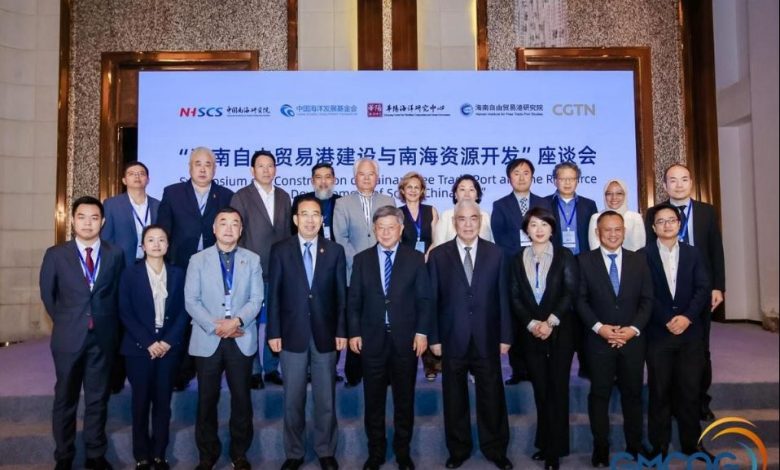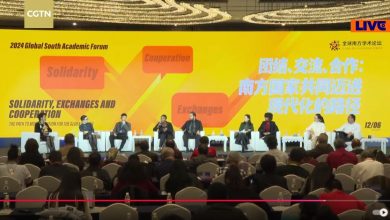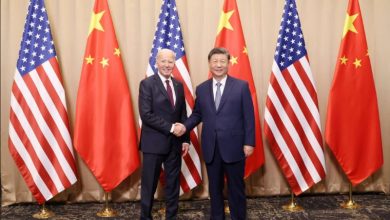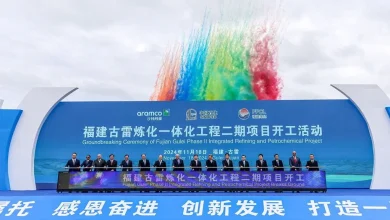Sanya Hosts Symposium on Maritime Silk Road Cooperation

China to expand cooperation partnerships for building Maritime Silk Road
-
China is willing to share its ocean development achievements and experiences with all countries, work for even closer blue partnerships, build the 21st-Century Maritime Silk Road: Wang Yi, Chinese Foreign Minister
-
“Dialogue is the way and confrontation just leads to misery” says Peter Thomson, UN Special Envoy
-
Participants emphasized the need to foster ‘dialogue and cooperation’ during interactive sessions of 5th Symposium on Global Maritime Cooperation and Ocean Governance that concluded in Sanya City of South China’s Hainan Province
By: Muhammad Arif, Editor NSN.Asia
Sanya: China is willing to share its ocean development achievements and experiences with all countries, work for even closer blue partnerships, build the 21st-Century Maritime Silk Road to high standards, and jointly promote the high-quality, sustainable development and prosperity of the ocean.
Chinese Foreign Minister Wang Yi and also a member of the Political Bureau of the Communist Party of China Central Committee, said while delivering a keynote speech via video at the 5th Symposium on Global Maritime Cooperation and Ocean Governance that concluded in Sanya City of South China’s Hainan Province on Wednesday.

Wang Yi further added that China is prepared to work with relevant countries to properly handle maritime differences through negotiations and consultations, maintain peace and stability at sea, and promote lasting ocean security.
As a Chinese saying goes, “All rivers flow into the sea, yet the sea is never full.” China is ready to work hand in hand with the international community to turn the ocean into a place of peace and tranquility, a source of prosperity and development, and a platform of inter-civilization exchange and integration shared by all countries of the world”, he concluded.
The symposium drew more than 300 guests from over 30 countries and regions to discuss issues relating to maritime cooperation and ocean governance.
Attendees, comprising scholars and representatives of international organizations and maritime departments, tackled seven topics, including “Global Ocean Governance: Rules, Responsibilities, and Power” and “Settlement of Maritime Disputes: Dialogue or Confrontation.”

As global governance currently faces new opportunities and challenges, there was a consensus among participants to favor dialogue over confrontation in resolving maritime disputes between countries over maritime delimitation and even territorial sovereignty.
“Dialogue is the way and confrontation just leads to misery. The essential thing in the ocean is that there is only one ocean. It’s very important that we all get together occasionally to discuss our one ocean,” said Peter Thomson, United Nations Secretary-General’s Special Envoy for the Ocean.

“I think every state has its own claims and interests based on international law. I think in that sense, cooperation and dialogue and consultation are very important, but then also at the same time I think self-restraint has been emphasized as critical so that it does not escalate to a conflict,” said Dita Liliansa, a research fellow at the Ocean Law and Policy Program of the Center for International Law of the National University of Singapore.
The symposium also focused on ecological conservation and sustainable development of the ocean. The attending guests looked forward to building a platform for communication and cooperation through the symposium, and providing suggestions for global ocean governance.
“We hope to gradually build consensus among all parties through this platform and pool everyone’s wisdom,” said Wang Sheng, president of the National Institute for South China Sea Studies (NISCSS).”We are committed to the sustainable, high-quality and peaceful development of the ocean so as to advance the progress of the harmonious civilization, peace, cooperation and friendship in the ocean, which is the purpose and objective for us to develop this platform,” said Wu Shicun, chairman of the Huayang Center for Maritime Cooperation and Ocean Governance, and also director of the Academic Committee of the NISCSS.
Multiple parallel forums and dialogues with a specific emphasis on ocean-related issues were also held throughout the two-day symposium.
“History shows us that the best way to progress human beings on this planet is through dialogue, not through confrontation. We know that is the central lesson of history,” Peter Thomson, the United Nations Secretary-General’s Special Envoy for the Ocean, told the Global Times. He also expressed his hope that the South China Sea issue will be resolved by peaceful discussions between the parties involved.

The Symposium was attended by nearly 300 participants, including experts, scholars, former political leaders, senior diplomats from foreign embassies in China and representatives from international organizations and maritime agencies.





